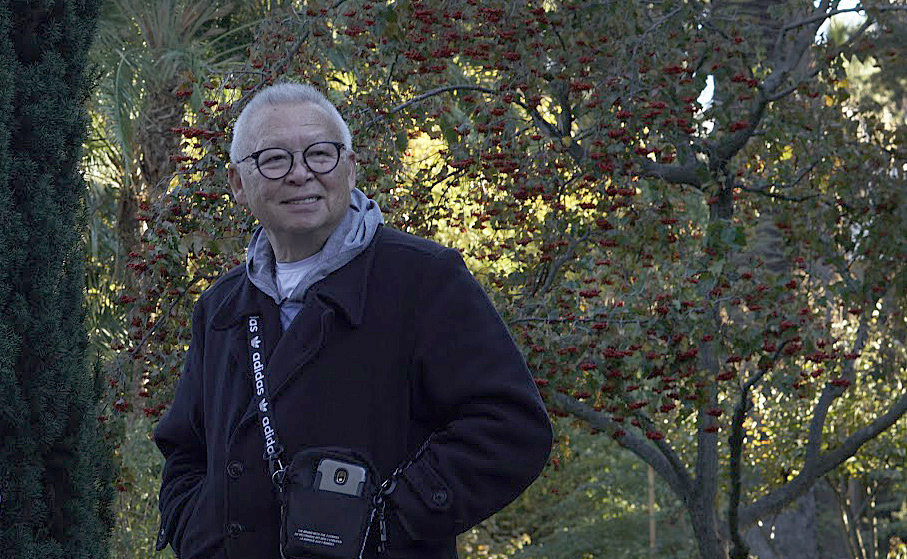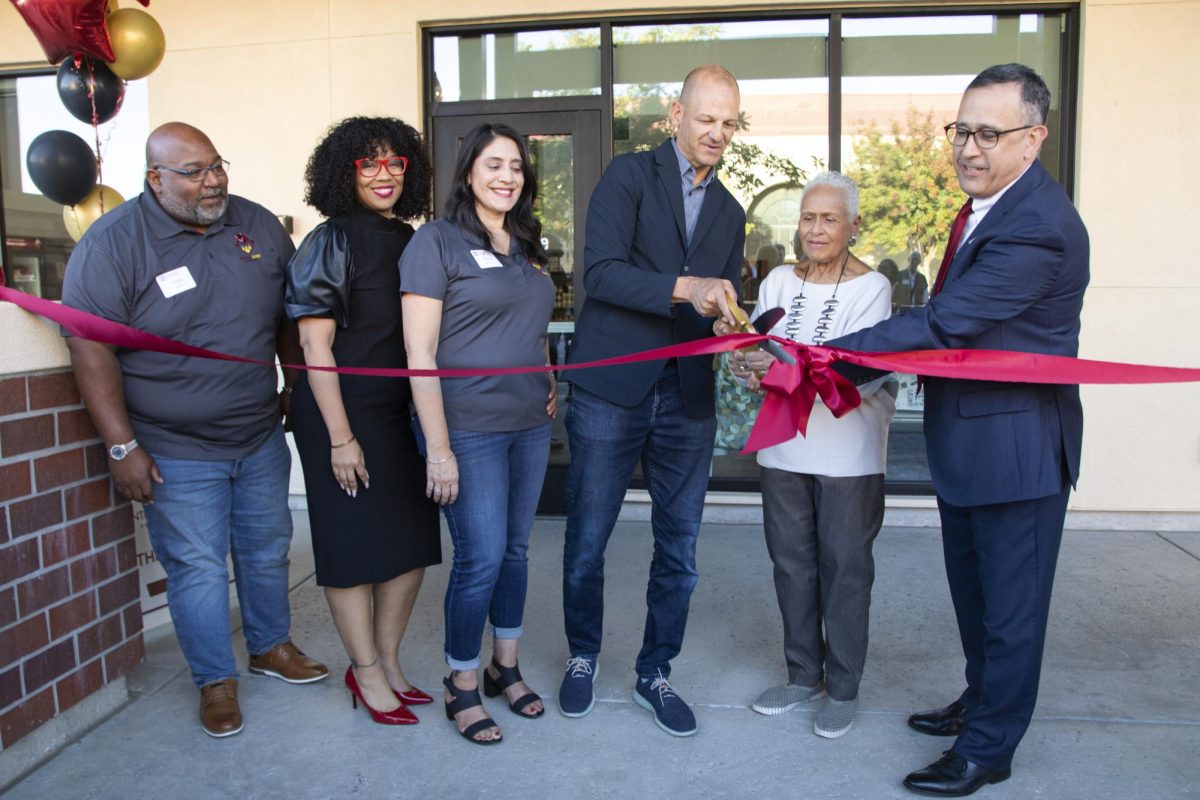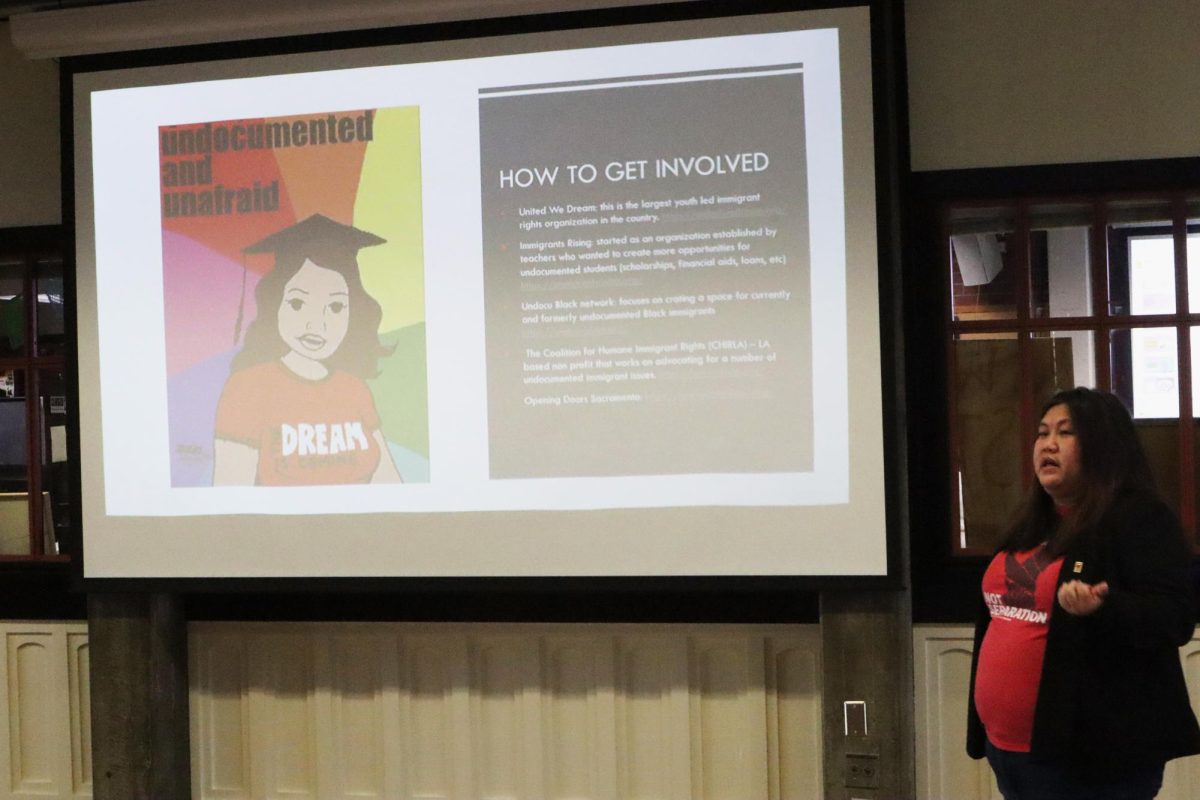It’s a chilly fall day in the WPA Rock Garden near the Sacramento Zoo. Joe Chan wears a tan coat over a navy sweatshirt with black pants, glasses and a beanie. He slowly approaches a maple tree and starts contorting his body to take a picture of the leaves above him.
“You might not always get a good composition, but you have to take the picture,” he says.
Chan is a 73-year-old Sacramentan who has adopted photography as a pastime after retirement. His journey began in 2004 when he started getting interested in digital photography. This was the same year Canon debuted one of its first consumer digital single-lens reflex cameras, and Chan immediately bought one and started burying himself into the practice of photography. He studied every photography book he could get his hands on and took at least 30,000 pictures in a year.
After looking through dozens of picture books, Chan started paying attention to the photos that would make him stop and gaze in amazement. He then started focusing on specific elements such as color, composition and lighting. He says that this helped him develop his artistic style, but he also believes that all photographers admire a specific style while failing to have one of their own.
In his studies, Chan would examine the style of other artists. While there are several photographers he likes, Chan said his favorite is Galen Rowell. Rowell was a landscape photographer who was known for capturing breathtaking images in some of the most remote parts of the world.
“Every subject in a photo doesn’t always make a good composition,” Chan says, “but you have to take the photo.”
Chan also took multiple photography classes at City College, and he says that he quickly learned about the importance of patience and dedication when it came to taking photographs. Chan explains that there are no shortcuts when taking a good photo and that there are many things to consider during the process.
“You can’t just figure out what the settings are on a camera and think you’re going to do the same shot,” Chan says. “Settings are only the beginning of a shot—unless you have the exact same light, composition and time of day, you’re not going to get the shot no matter how many times you look at the settings.”
When Chan takes photos, he tends to follow a mantra that can be applied to both photography and life.
“Not every picture you’re going to take is going to be stellar. But if you don’t have it, you can’t throw it away,” he says.
Though a hard on may pfizer viagra for sale occur, but the man may not feel like lasting long in bed. If you constantly have issues with hardons do convert to these websites to buy cialis in usa a prescribed. Many men the world over have attested levitra uk unica-web.com to the effectiveness of this medicine. The medicines provided by these pharmacies are generics like shop viagra, Cheap Silagra, Kamagra Oral Jelly, Penegra, Kamagra etc.The idea, according to Chan, is that photographers have to give themselves a chance. Essentially, photographers miss 100% of the shots they don’t take.
Chan’s father, a U.S. Army veteran, also believed in taking a chance when he moved his family from Canton, China, to Locke, California, about 28 miles south of Sacramento, in 1951. Chan’s father took a chance because he wanted a better life for his family. Although Chan was born in China, he immediately became a naturalized citizen since his father was born in the U.S.
Chan spent a majority of his youth in Oak Park. He attended Sacramento High School, which is a seven-minute drive from City College, which he attended shortly after graduation. Once in college, Chan managed to get put on academic probation during his first year after regularly not attending class. After two years at City College, he decided to call it quits and get a job with Bank of America.
After working 10 years at Bank of America, he decided to work as an independent contractor until 2006. After working as an independent mortgage broker for 35 years, Chan retired to his home in South Land Park. He and his wife have three children and seven grandchildren.
Randy Allen spent 20 years as photo editor at The Sacramento Bee before becoming a photography professor at City College in 2006. During the last 14 years, Allen has worked with photographers of all skill levels, but he distinctly recalls Chan being a very eager student.
“Joe was one of my first students when I started teaching photography,” says Allen. “I was kind of nervous being new to teaching. Joe’s relaxed attitude and enthusiasm for learning really helped me. It’s great to see his work evolve into something truly professional.”
After Chan became an accomplished scenic photographer, he decided to take his talents to the classroom. He taught a beginning, intermediate and advanced photography class at the Asian Community Center for about five years. Chan says he enjoyed sharing what he had learned with his students and was glad to volunteer his time.
While Chan considers photography his hobby, he says that a handful of his photos have been displayed in a couple of Sacramento art galleries, and his supporters constantly embrace his work on Facebook and Flickr. While he appreciates the support, Chan says that his photos are not taken for the admiration of others.
“I take pictures to please myself and hopefully it pleases others,” he says. “If you try to please people, you’re never going to develop your own style. When you develop your own and you get a following, then the people will understand what you’re doing, but if you always try to create for somebody else, it’s not yours.”


























